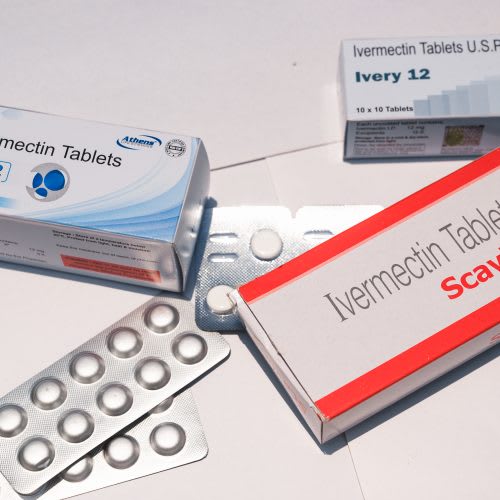Ivermectin's Misguided Journey: From Dewormer to Dubious Cure-All
 The Tech Times
The Tech Times
In a digital age where information spreads at lightning speed, the persistence of false claims about certain medications, such as ivermectin, highlights a growing concern in public health narratives. The latest developments surrounding ivermectin illustrate how misinformation can lead states to enact laws with potentially far-reaching consequences.
The Ivermectin Phenomenon
Originally developed as an antiparasitic drug, ivermectin has long been used in both veterinary and human medicine to treat various parasitic infections. Its effectiveness in these areas is well-documented and undisputed. However, the drug catapulted into the spotlight during the COVID-19 pandemic, fueled by widespread misinformation suggesting it could cure COVID-19 and even cancer. These claims, primarily propagated through social media channels, have persisted despite a lack of scientific evidence supporting such uses.
The allure of a simple, over-the-counter cure has proven too tempting for many, leading to a surge in demand and use of ivermectin outside its intended purpose. As a result, several states have decided to allow the sale of ivermectin over the counter, a move that is both controversial and indicative of broader societal issues.
Historical Context and Misinformation
The saga of ivermectin is not the first instance where a drug has been mistakenly heralded as a miracle cure. Historically, the medical community has grappled with the misuse of treatments, often spurred by anecdotal evidence and sensationalized reporting. In the 19th century, for instance, substances like opium and cocaine were once marketed as cure-alls for various ailments, only to later be understood as having significant potential for harm.
Similarly, the modern era has seen drugs such as hydroxychloroquine receive undue attention as potential treatments for COVID-19. Despite initial excitement, rigorous studies have debunked these claims, underscoring the importance of relying on peer-reviewed scientific research rather than anecdotal evidence or incomplete studies.
The Role of Social Media
Social media platforms have played a pivotal role in the ivermectin narrative, acting as a double-edged sword. On one hand, they provide a platform for rapid dissemination of information, which can be beneficial in public health crises. On the other hand, they also serve as breeding grounds for misinformation, often amplifying unverified claims and bypassing traditional fact-checking mechanisms.
The challenge lies in balancing freedom of speech with the need to protect public health—a task that social media companies, governments, and health organizations continue to navigate.
A Path Forward
As states pass laws allowing over-the-counter sales of ivermectin, it is crucial to reflect on the broader implications. While these measures may aim to address public demand and reduce black-market sales, they also risk legitimizing unproven uses of the drug, potentially leading to misuse and adverse health outcomes.
The key to combating misinformation lies in education and communication. Health authorities must prioritize clear, consistent messaging, emphasizing the importance of evidence-based medicine. Furthermore, fostering partnerships between healthcare providers, policymakers, and tech companies can help develop strategies to mitigate the spread of misinformation.
Conclusion
The ivermectin controversy serves as a stark reminder of the complexities surrounding modern healthcare and information dissemination. As we continue to navigate these challenges, it is imperative to champion scientific integrity and cultivate a well-informed public. Only then can we hope to prevent the next wave of misinformation from derailing public health efforts.
Source: False claims that ivermectin treats cancer, COVID lead states to pass OTC laws
Subscribe to my newsletter
Read articles from The Tech Times directly inside your inbox. Subscribe to the newsletter, and don't miss out.
Written by
